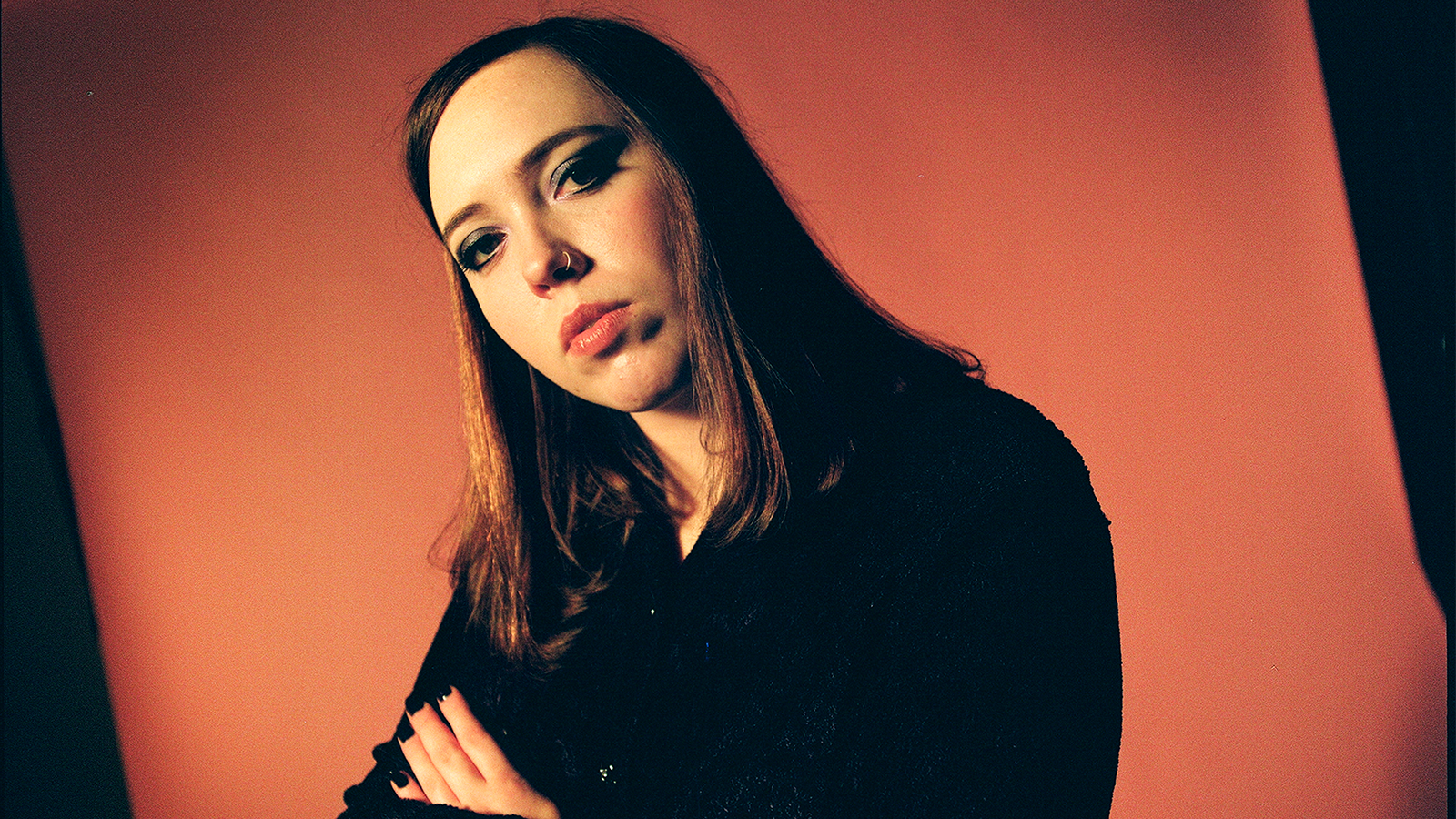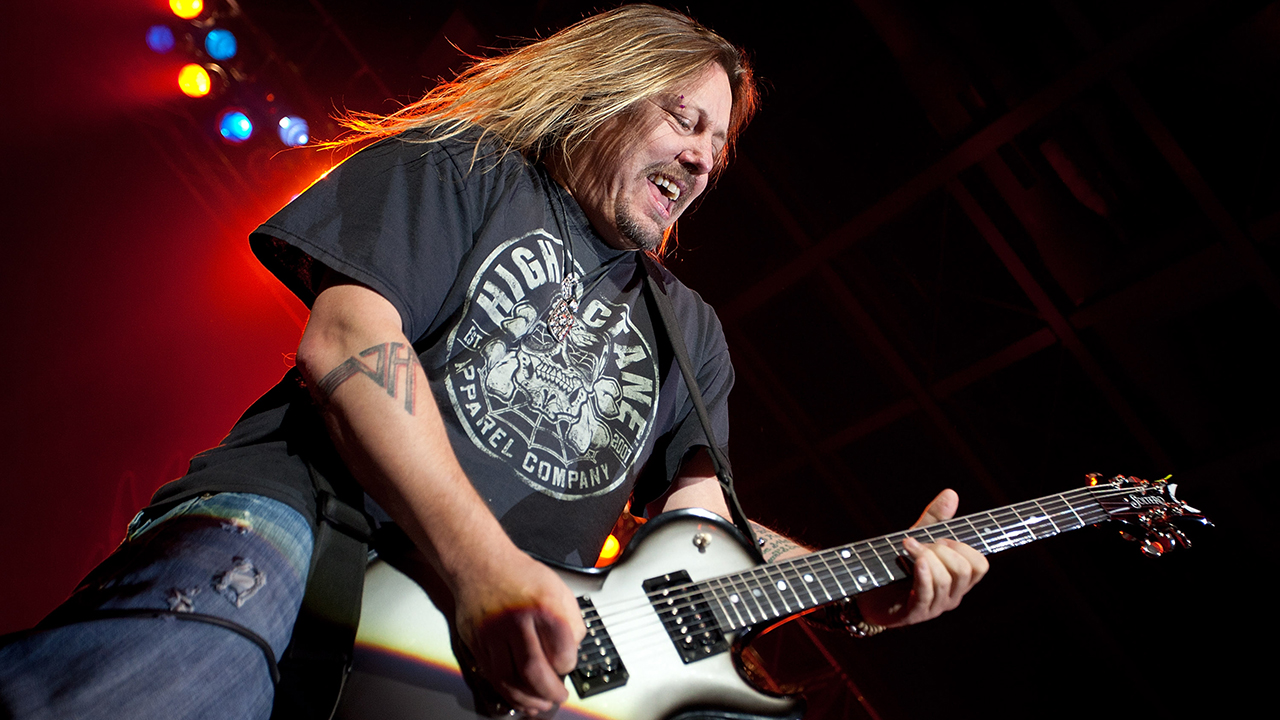Soccer Mommy: “I wanted there to be this mix of evil and light”
Soccer Mommy peers back the curtain on her most ambitious album yet: Sometimes, Forever

All the latest guitar news, interviews, lessons, reviews, deals and more, direct to your inbox!
You are now subscribed
Your newsletter sign-up was successful
The first two Soccer Mommy albums, 2018’s Clean and 2020’s Color Theory, drew inspiration from the emo and pop-rock greats of the mid ‘90s through to the early ‘00s. But in her fierce determination to keep reinventing herself, Sophie Allison skipped over the ‘10s and the present day entirely, setting LP3 somewhere in the very distant future. Sometimes, Forever is an experimental and ambitious record, ebbing and flowing from cruisy pop jams to gothic alt-rock sizzlers. Like its title suggests, it’s a record defined by contrasts, where Allison leaps from one extreme to the next and has a damn blast doing it.
Flanked by her live band and producer Daniel Lopatin (better known by the moniker Oneohtrix Point Never), Allison set about making Sometimes, Forever in a defiantly natural way – though it saw them experiment freely with synths and convoluted song structures, the band recorded most of the album live in the room, allowing it to blossom with a personality that would have been impossible to whip up in a program. It’s unmistakably Soccer Mommy, but in such a way that Allison’s evolution is palpable: she’s no longer the new kid on a sprawling block of indie-rock greats that blazed the trails ahead of her, but a great of her own creation, blazing trails for herself and herself alone (well, herself and her bandmates).
Australian Guitar hopped on the phone with Allison to learn more about how she endeavoured to create her most enthralling Soccer Mommy album.
This album hits a really striking balance between the melancholic and the magical – you’ve got those super dark and experimental songs like ‘Unholy Affliction’ and ‘Darkness Forever’, but then those huge pop anthems like ‘Shotgun’ and ‘Feel It All The Time’. Was that duality a big part of the concept?
Oh yeah, definitely. I wanted there to be this mix of evil and light and, y’know? With a song like ‘Feel It All The Time’, for example, when that chorus comes in, it makes you want to wave your hand out the window of your car. I want to express those feelings of being so down and wondering, like, “Am I gonna make it through life? I can’t even make it as far as this truck can go.” But then that sense of relief you get when you let it all go, y’know?
The tonal palette on this album, too, is just f***ing insane. What was it like to have that much bigger sonic sandbox to play in?
Oh, my God, I was so excited. That’s exactly what I wanted from the start – I wanted it to feel like these songs were being played by a band that had all this mysticism around it. Like that magical feeling you get when you play in a small, old theatre with insane acoustics, and there’s just this eeriness and this magic to everything. All of the synth sounds we used, they weren’t just the classic “indie synth” type of sounds – not that that’s what we did in the past, either, but I just wanted this album to have that magical, fantasy kind of feel to it.
Dan[iel Lopatin, producer] did a really good job of capturing that stuff. I remember he was playing something for ‘Newdemo’, right when we were recording it – we had just done the guitar and vocals, and he was playing this melody line on a MIDI keyboard, just over the chorus, and I was like, “That sounds like something you’d hear at the end of a Studio Ghibli movie.” It had this sense of childlike fantasy about it, and it was just so amazing.
Is it more gratifying for you as a guitar player, too, when you’ve got these structures that aren’t your typical “indie-rock song structure” to play in?
I don’t know, but that’s an interesting thought. I think with the way that songs like ‘Bones’ or ‘Shotgun’ were done, I almost think it’s kind of good to be laidback. Those songs have some of my favorite guitar moments, I would say. Julien [Powell], the guitarist in my band, he’s usually the one that brings in a lot of the experimental stuff, but he also had some of the most amazing, just completely clean riffs going on in a lot of the songs. I think that contrast was really cool – having that mixture of experimental and strange, glitchy, ambient, washy synth parts, but with this clean, almost like George Harrison-sounding guitar stuff over it.
All the latest guitar news, interviews, lessons, reviews, deals and more, direct to your inbox!
Were you recording much of the album live over those synths?
Yeah, but the other way around – we were tracking all the instruments live, and then we’d add the synths and whatnot on it later, after we had all the basic tracks down. It felt very much like the way we play it live, just having the whole band in a room together and working out the songs, trying to get the vibe right for the take.
I remember when we were doing ‘Darkness Forever’, Dan came in and burned sage, and then turned off like all the lights so it was pitch black – and by the time we got the tape, we had to go outside because it was two o’clock in the afternoon but we’d in the darkness for hours. and it had been in like the pitch black for hours. But that was all in the spirit of getting that live band feeling, and making it feel as natural as we could. We didn’t want to have to do a lot of chopping up – a little’s fine, obviously, but we wanted at least one take that felt like, y’know, “the one”.
After the emotional journey that this album takes you on, ‘Still’ really is the perfect closing track – it feels like reprieve, but the kind of reprieve where you just sit there stunned, like, “Goddamn, what just happened!?” When you wrote that song, was it obvious that it would be the last track on the record?
Yes! And that was the first song I wrote for the album – which is very strange, but I feel like on every record, I always know what the last song is going to be. I hadn’t written any other songs and I didn’t have an idea of what the album would sound like, but it felt like an ending track.
Did that sort of like ground the record, like, “All the other tracks have to lead to this point”?
In a sense? I just kind of do whatever when I’m writing, but I remember also thinking that ‘Bones’ should be the first track. It’s helpful to have those goalposts when you’re creating a tracklist, because then you can kind of build the flow from one song to the next. I always picture it in halves – y’know, like side A and side B, even though most people are just listening to it on Spotify.

Ellie Robinson is an Australian writer, editor and dog enthusiast with a keen ear for pop-rock and a keen tongue for actual Pop Rocks. Her bylines include music rag staples like NME, BLUNT, Mixdown and, of course, Australian Guitar (where she also serves as Editor-at-Large), but also less expected fare like TV Soap and Snowboarding Australia. Her go-to guitar is a Fender Player Tele, which, controversially, she only picked up after she'd joined the team at Australian Guitar. Before then, Ellie was a keyboardist – thankfully, the AG crew helped her see the light…
